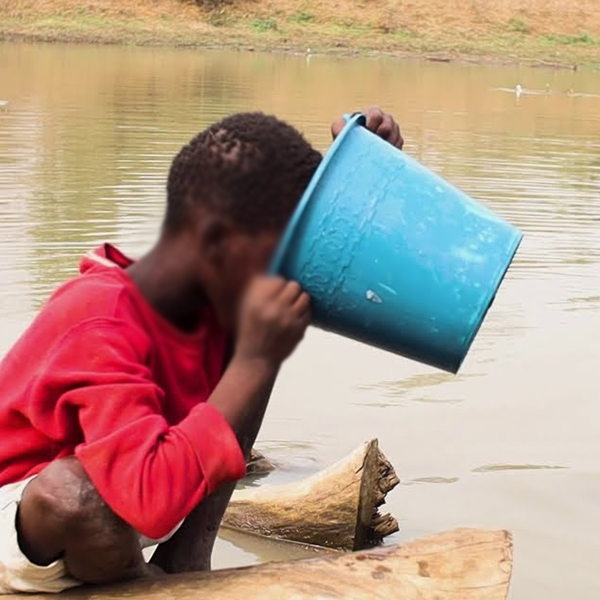Water. It is more than just life’s necessity—it’s the foundation of health, food, livelihoods, and hope. But Ghana’s water is under siege. Illegal mining—galamsey—pollutes rivers, depletes water sources, damages ecosystems, and drives up the cost of clean water for families.
The Water Resources Commission (WRC) is the legal guardian of Ghana’s water bodies. Established under Act 522 of 1996, its mandate is clear: regulate water use, protect water bodies, prevent pollution, enforce water permits, collect and share data, and coordinate policies for sustainable water resources management. Water Resources Commission+3Water Resources Commission+3SURGA11+3
Yet, as galamsey continues to ravage river basins, what the WRC can do, and must do urgently, becomes a matter of national survival.
What WRC Has Begun (but Needs to Push Harder)
-
The WRC has initiated a pilot groundwater safety project registering boreholes and wells in Ga West and Adenta Municipalities, to monitor water quality and protect groundwater from pollution. Ghana National Association
-
The Commission is also rolling out Water Hazard Risk Management Initiatives, including flood early warning systems, drought preparedness, hazard mapping, and stakeholder engagement. Water Resources Commission
-
On World Rivers Day, WRC disclosed alarming data: since 2016, each citizen has lost about 400 cubic metres of water due to pollution and environmental degradation. This has pushed per-capita water availability from about 1,900 to 1,500 cubic metres. Projections warn of even steeper decline if galamsey is left unchecked. GhanaWebbers
-
WRC has completed stakeholder consultations on new Buffer Zone and Water Pollution Regulations, which aim to increase protection of riparian areas, reduce pollution, and strengthen enforcement especially related to illegal mining. Water Resources Commission
What WRC Must Do to Fully Live Its Mandate vs. Galamsey
Here’s a proposed roadmap of what the WRC can and should do — quickly, firmly, and transparently — to defend Ghana’s water, fulfill SDG 6, support government multiple interventions in the fight against galamsey and protect communities from the damage of galamsey.
-
Enforce Buffer Zones & Riparian Protection
-
Move from policy consultations to law in force — pass and enforce buffer zone regulations immediately.
-
Prevent mining activity within critical proximity to watercourses, wetlands, and rivers.
-
Demarcate, monitor, and restore destroyed riparian areas; reforest where needed to prevent erosion and runoff.
-
-
Strengthen Pollution Monitoring & Penalties
-
Increase water quality and flow-monitoring stations in mining hotspots.
-
Use remote sensing, community reporting, and independent sampling to detect illegal discharges and mercury contamination.
-
Impose strong penalties on illegal miners and industries that fail to treat or clean wastewater — financial, legal, or closure.
-
-
Regulate Water Use & Permit System
-
Ensure all industrial, agricultural, and mining operations have valid water use permits, especially those that involve water abstraction or discharge. WRC must monitor compliance closely. Water Resources Commission+2SURGA11+2
-
Require Environmental Impact Assessments (EIAs) that explicitly address water resource impacts for mining permits.
-
-
Groundwater Protection
-
Scale up the borehole/well registration program nationwide, especially in mining-affected areas. Ghana National Association
-
Enforce safe drilling, siting, maintenance, and water quality standards for all groundwater sources.
-
Regularly test for heavy metals (e.g. mercury, arsenic) and publish results.
-
-
Public Data Transparency & Community Engagement
-
Publish regular reports on water quality, abstraction volumes, pollution incidents.
-
Educate affected communities on the risks of polluted water and encourage community-based monitoring.
-
Provide platforms (hotlines, SMS reporting, local forums) for citizens to report illegal mining and water pollution.
-
-
Alternative Livelihoods & Socioeconomic Measures
-
Work with the Ministry of Lands & Natural Resources, Environmental Protection Agency, local authorities to provide alternative jobs for people dependent on illegal mining.
-
Promote sustainable small-scale agriculture, eco-tourism, or other viable options in mining areas.
-
-
Enable Strong Legal Frameworks & Interagency Cooperation
-
Collaborate closely with EPA, Minerals Commission, Forestry Commission, local governments, and security forces to coordinate enforcement actions.
-
Ensure that the WRC has enough staff, technical capacity, and budget to prosecute offences, inspect sites, and respond to alerts.
-
-
Integrate Climate Risks & Water Stress Reporting
-
Incorporate climate projections into water planning — anticipate droughts, decreased rainfall, heavier flooding.
-
Use risk maps to identify which river basins are most vulnerable to pollution and over-extraction.
-
Set thresholds and early warning for water stress, so that action (restriction of abstraction, shutting down offending operations) can be triggered before crisis hits.
-
Why It Matters — And What We Risk Losing
-
Polluted rivers force Ghana Water Company and others to treat water at very high cost, driving up tariffs for consumers. GhanaWebbers+1
-
Loss of potable water, destruction of aquatic life, food insecurity, health crises (mercury poisoning, waterborne disease).
-
The loss of water per person is already substantial; projections show potential collapse below sustainable thresholds if action fails. GhanaWebbers
-
SDG 6 cannot be achieved unless water is protected, not just shared.
Call to Action
-
WRC must act with urgency—no more delays.
-
The Government must back WRC with sufficient legal tools, funding, and political support.
-
Citizens, civil society, media must demand accountability — expose galamsey, pollution, and misuse of water resources.
-
Stakeholders must support WRC’s proposed new regulations and buffer zones, ensuring they are not only passed but implemented.
Conclusion
Ghana’s water future depends on strong guardianship, enforceable rules, informed citizens, and decisive leadership. The Water Resources Commission has the mandate and some early initiatives. But galamsey is not a challenge we can manage casually. It demands bold measures—buffer laws, strict enforcement, transparent data, and livelihood alternatives.
To protect water is to protect life. If Ghana loses its water bodies, the costs will be far beyond anything we can afford.





